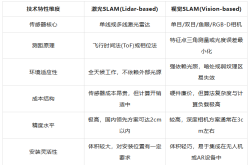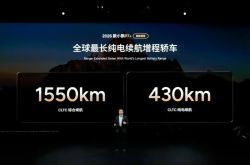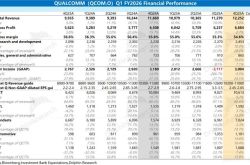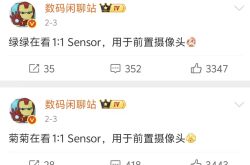Who's Next to be Out? 2024: Xiaomi Motors Rises, GeelyX EV Faces Challenges
![]() 12/16 2024
12/16 2024
![]() 426
426
In 2024, the domestic new energy vehicle industry witnessed three pivotal events that shook the sector. Firstly, GeelyX EV, backed by Baidu and Geely Auto, was embroiled in controversy. Secondly, NIOA Auto's CEO Zhang Yong resigned. Lastly, Xiaomi Motors emerged as a star automaker with the triumph of the Xiaomi SU7.
As the controversy around GeelyX EV intensifies, the industry's shuffle continues.
The Decline of GeelyX EV
Prior to the controversy, GeelyX EV was relatively unknown. Born from a powerful alliance, combining Baidu's autonomous driving technology with Geely's robust manufacturing capabilities, the venture failed to achieve a synergistic effect greater than the sum of its parts.
Multiple factors contributed to GeelyX EV's decline, including internal management issues. However, the primary causes of the salary dispute among employees were twofold.
The primary reason behind GeelyX EV's current predicament is poor sales. Throughout 2023, the company sold only 774 vehicles. In 2024, sales somewhat rebounded, with GeelyX 01 exceeding 10,000 units and GeelyX 07 nearing 4,000 units, but this was driven by significant price reductions.
The second major reason is disrupted cash flow. Vehicle manufacturing is capital-intensive, requiring continuous capital injection, stable cash flow from other businesses, or sufficient sales to sustain operations. Clearly, GeelyX EV lacked all these. With no business generating sufficient cash flow and capital injection halted, even major shareholder Baidu, initially set to increase investment, withdrew due to certain reasons.
The lack of cash flow made it impossible for GeelyX EV to operate, leading to the "disbandment" controversy.
The Retreat of NIOA Auto
NIOA Auto seems to share a similar fate with GeelyX EV. On November 7, according to exclusive reports from CaiLian Press, NIOA Auto initiated large-scale layoffs. An anonymous insider stated that some layoff ratios reached 70%, with compensation plans of N+1 to be paid within 60 working days. Additionally, only half of the September salaries were paid, and October salaries remained unconfirmed.
Regarding salary issues, NIOA Auto responded that frontline employees and factory workers were paid on time. The company had been adjusting the salary structure for middle management and executives, with only minor delays in a few salary payments.
On December 5, Fushi Holdings announced that its subsidiary, Beijing D&S Public Relations Consulting Co., Ltd., had filed a lawsuit against Hetong New Energy Automotive Co., Ltd., the parent company of NIOA Auto, with the People's Court of Tongxiang City, Zhejiang Province, due to a service contract dispute. The announcement revealed that NIOA Auto owed over 53.55 million yuan in unpaid amounts.
Misfortunes seem to come in clusters. On December 6, NIOA Auto CEO Zhang Yong stepped down, transitioning to an advisory role.
From layoff controversies to supplier debt issues and the dismissal of CEO Zhang Yong, NIOA Auto faces difficulties akin to GeelyX EV. In November 2024, NIOA Auto sold only 1,500 vehicles, fewer than the 1,932 sold by GeelyX EV.
However, unlike GeelyX EV, NIOA Auto has received some financial support. On November 14, Nanning Industrial Investment Group reached a strategic cooperation agreement with NIOA Auto, providing supply chain financial support. Whether NIOA Auto can overcome its difficulties in the future depends on its sales recovery and IPO success.
The Success of Xiaomi Motors
Compared to GeelyX EV and NIOA Auto, Xiaomi Motors shone brightest in the automotive market in 2024. The success of the Xiaomi SU7 catapulted Xiaomi Motors into the limelight. Currently, Xiaomi Motors is accelerating production expansion to meet order demand.
Xiaomi Motors' success is not solely attributed to advanced vehicle manufacturing technology but to several other factors.
Firstly, Xiaomi has stable revenue and solid cash flow. Its cash reserves after entering the automotive industry increased from 100 billion yuan in 2021 to 150 billion yuan, providing ample funding for vehicle manufacturing. Besides substantial cash reserves, Xiaomi's mobile phone and IoT businesses also contribute steady cash flow to support its automotive operations.
Secondly, Xiaomi's marketing prowess is undeniable, a consensus within the entire automotive industry. The success of Xiaomi SU7 is indeed linked to Lei Jun's internet celebrity status and Xiaomi Motors' classic marketing strategies.
Thirdly, Xiaomi Motors' products themselves contribute to its success. Although a few Xiaomi SU7 vehicles experienced minor quality issues, the overall product quality has earned the trust of many Xiaomi car owners. Without the solid foundation of Xiaomi SU7, no matter how effective the marketing, it would ultimately backfire.
Lastly, Lei Jun and Xiaomi's team management capabilities play a crucial role. This management capability is evident in Xiaomi Motors' entire supply chain management and after-sales service level, laying a solid foundation for the continued popularity of Xiaomi SU7 sales.
2025: The New Energy Vehicle Industry Shuffle May Intensify
As leading brands' sales further increase, domestic new energy vehicle manufacturers may face an even more formidable shuffle in 2025, especially among startups, with more brands expected to be eliminated. Currently, the new energy vehicle manufacturing landscape is forming three major groups.
First Group: Traditional private enterprises represented by BYD, Geely, and Great Wall, with BYD's leading position in the new energy vehicle sector becoming increasingly prominent.
Second Group: State-owned holding enterprises represented by Chery, SAIC, Changan, GAC, Dongfeng, FAW, and BAIC. Despite the growing advantages of BYD, Geely, and leading new energy vehicle startups, the strength of state-owned automakers cannot be underestimated.
Third Group: Leading new energy vehicle startups represented by Xiaomi, Wenjie, Lixiang, NIO, XPeng, and Leapmotor. As the head effect of new energy vehicle startups becomes more pronounced, more brands are expected to be eliminated next year.
In this elimination contest, who will be the next to fall?





